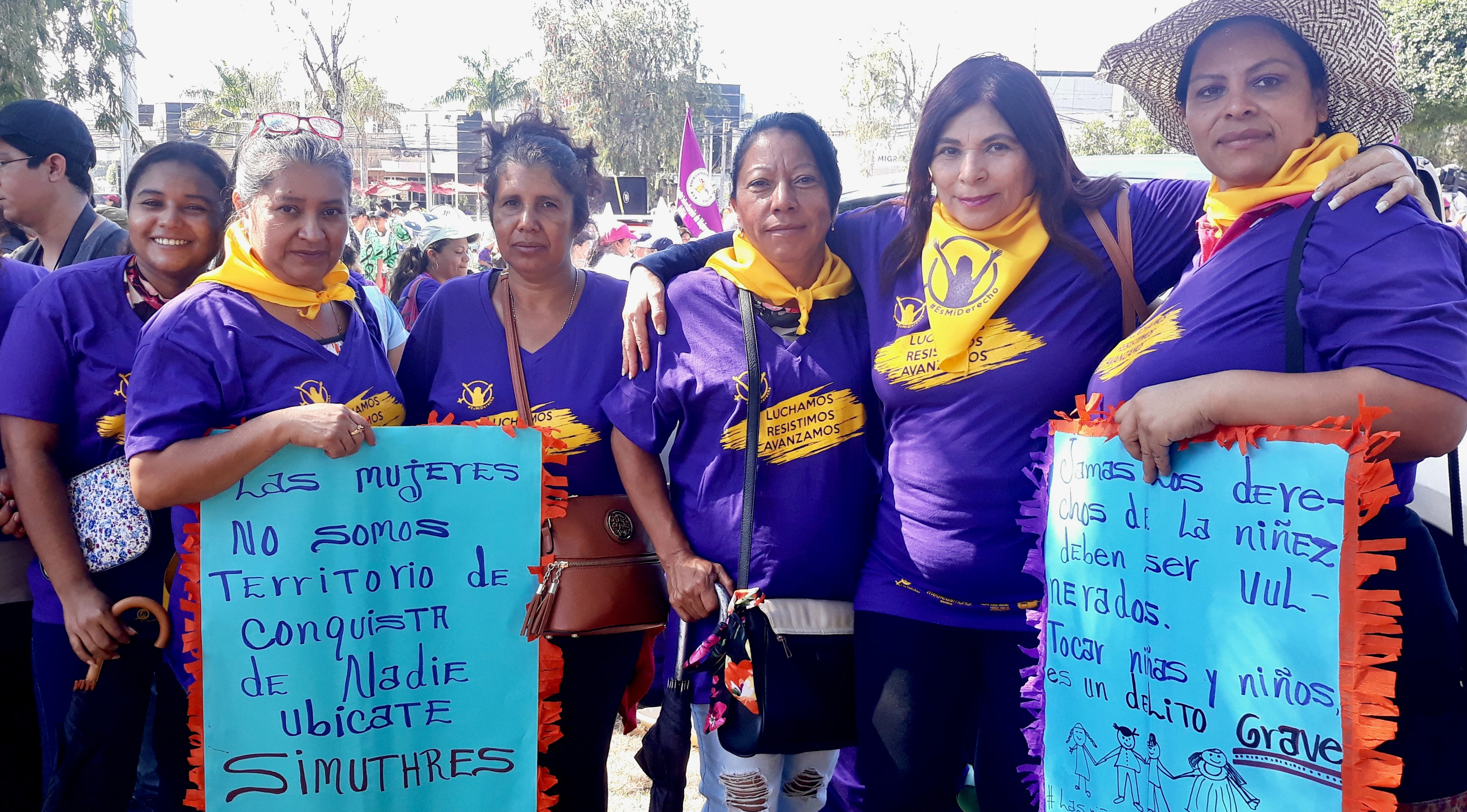El Salvador is among the countries with the world’s highest rates of violence and femicide. This also affects domestic workers, who additionally suffer from discrimination in the workplace. In the Simuthres union, around 350 women are fighting for their rights and seeking to establish a culture of non-violence.
Domestic workers in El Salvador are exposed to frequent gender-based violence against women, often live in districts controlled by criminal gangs, and are exploited by their employers. It is against this background that “Brücke · Le pont” is supporting a union for female domestic workers called the Sindicato de mujeres trabajadoras del hogar remuneradas salvadoreñas (Simuthres). This joint project aims to improve the living and working conditions of domestic workers. Through training courses and legal and psychological advice, they learn how to demand their employment and human rights. The union also engages in publicity campaigns and sets up alliances to ensure that state institutions recognize domestic workers’ rights.
Resolving internal conflicts
For this organization for domestic workers to succeed, it is essential that the union is well-supported internally and presents a unified front to the outside world. Because of the nature of its membership, that is by no means a foregone conclusion: this is a grass-roots organization in which every domestic worker has a personal and complex experience of violence and discrimination. For most of them, working together as a group is something relatively new. Since the union was founded in 2014, the women have been through an impressive collective learning process. They have discovered that they also have to invest time and resources in creating a good internal working environment in addition to their main tasks.
They now run regular workshops on conflict transformation. These focus on strategies for resolving internal conflict and communicating confidently without resorting to violence, as well as on self-care, emotional wellbeing, and interpersonal relationships. The women have also drawn up rules on working together, which encourage mutual respect and consensus-based decision-making. One element of this is that the board members have improved the communication flow between themselves and with their members, while new members of the union are given personal support and are helped to integrate as well as possible.
Stronger in a union, stronger in society
The various areas in which Simuthres takes action are mutually beneficial: thanks to the training courses on gender and employment law, the union members develop an understanding of the structural nature of violence against women and domestic workers and are better able to understand the experiences of their colleagues. Being encouraged to express their opinions in the union helps them to demand their rights in the workplace and defend themselves from being abused.
Precisely because of their experience of violence of all kinds, it is vitally important for domestic workers to see the union as a place that is free from violence. This does not happen overnight but has to be carefully cultivated. Through their commitment, these women are promoting a culture of non-violence on many different levels.


